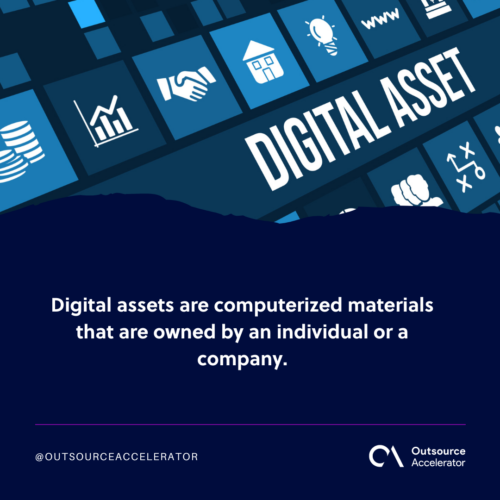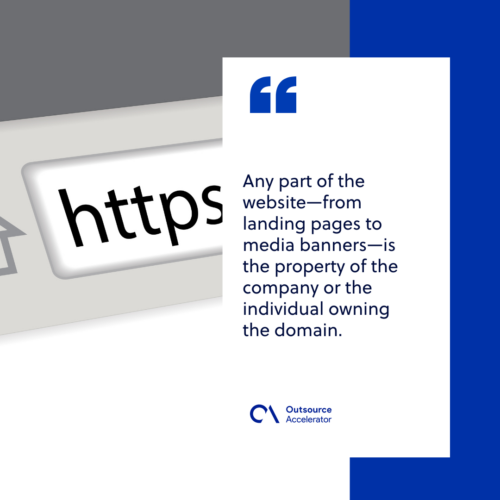Digital assets
Definition
What are digital assets?
Digital assets are computerized materials that are owned by an individual or a company. Anything from emails to logos is considered a digital asset. Covered by the intellectual property (IP) law, these are just as important as their physical counterparts.
In the modern world, virtual properties are protected by laws on intellectual properties, trademarks, copyrights, and more. They are protected because they hold something of value and they represent the public image of the individual or company.

5 most common types of digital assets
With modern technology and digitization of goods, there are many types of digital assets that one can create and own.
Keep in mind that in order for something to be considered a virtual property with value, it must be of importance and has an intrinsic value to the owner. For instance, a virtual painting is a digital asset itself, but a simple screenshot of a chat message is not.
Photography and illustration
While some photographs and illustrations are royalty-free, meaning they are subject to fair use, these are still considered to be virtual properties. They are the outcome of an individual’s project or a company’s campaign.
Digital painting and graphic design
Paintings and designs created using a software program are significantly harder to produce and replicate. This makes them a valuable property of an artist or a company.
To be precise, if an enterprise commissioned a third-party graphic designer to create the artwork, it could be the company’s property as covered by the consumer’s act.
Audio/visual media presentations
Presentations that have training materials, company strategies, and trade secrets are considered to be valuable assets.
Most of the time, these presentations are made with a high amount of effort and time and contain confidential information regarding the company and its operations.
Emails and text documents
Any written documents or correspondence are considered to be private and
confidential. When lost, misplaced, or maliciously shared with a third party, it could lead to lawsuits and a hefty fine.
Documents such as ebooks, articles, blog posts, and white papers are publicly available, but they are produced with time and effort and will therefore hold an intrinsic value.
On the other hand, internal emails are important and confidential—any conversations that are conducted through email are official and are a digital asset to the company.
Websites
Any part of the website—from landing pages to media banners—is the property of the company or the individual owning the domain. No other party can use the materials unless they are authorized to do so.

What is the purpose of digital assets?
Digital assets serve two general purposes, which can also help creators see the big picture while working on a project.
To inform
They are made to inform people—whether they’re from inside the company or the general masses. Most of the time, digital assets are full of information and credible sources that people can follow through for an in-depth analysis.
To entertain
Digital materials are made for entertaining and catching the attention of the consumers. Email blasts for newsletters, for instance, are a great way to catch the eyes of users, with another purpose of informing them.







 Independent
Independent




